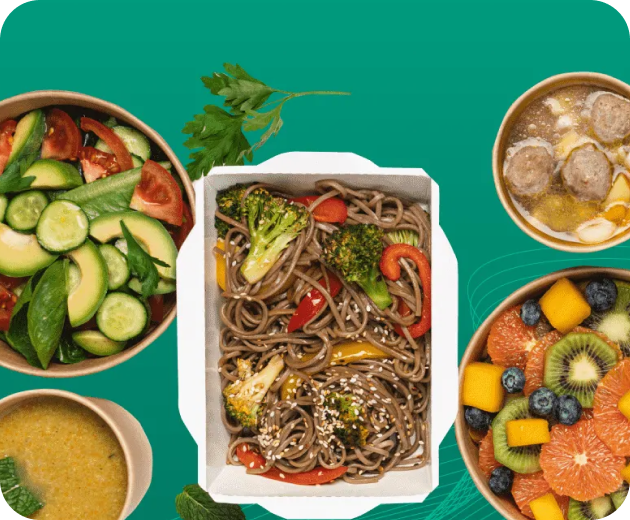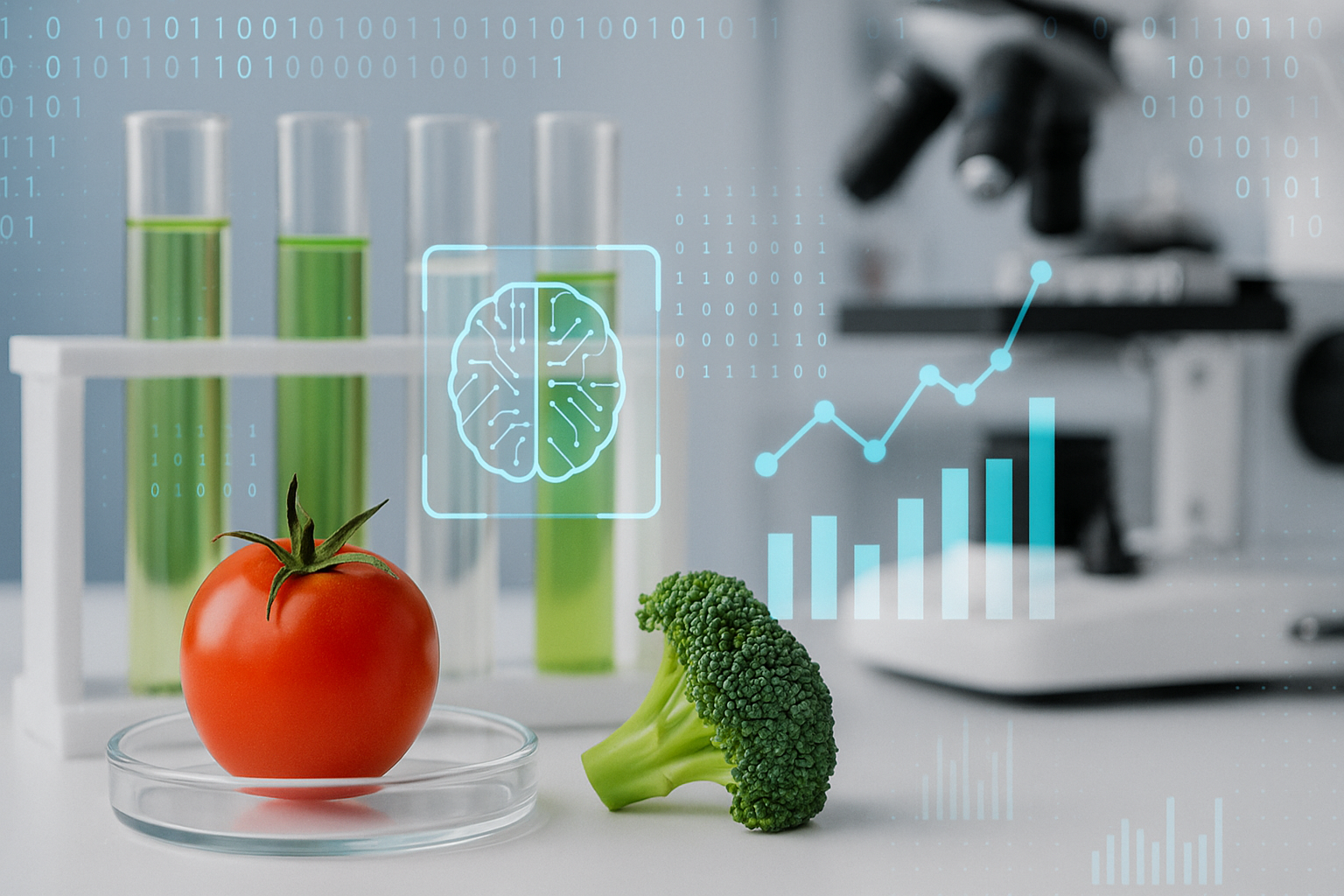2025 and Beyond: The Evolution of Food Tech
The food and beverage industry is entering a transformative era, where the convergence of technology and gastronomy is reshaping how we grow, consume, and experience food. With the arrival of 2025, we stand at the precipice of advancements that will redefine the food on our plates and the cultural and technological frameworks underpinning it.
But this shift isn’t occurring in isolation—it’s intertwined with generational and technological forces. Generation Beta, born after 2010 and growing up in a world shaped by AI, automation, and climate concerns, is poised to challenge conventional food narratives. Their preferences for sustainability, personalized nutrition, and tech-enabled convenience will accelerate food innovation.
As we explore the groundbreaking developments defining the future of food tech, we also take a glimpse beyond 2025, where quantum computing could unleash a revolution no one imagined.
A global snapshot of food tech innovation
From the AI-powered fridges of Samsung to solar-powered farms in Africa, the global landscape of food tech is vibrant and dynamic. Innovators are breaking new ground, solving pressing challenges, and imagining possibilities that were once science fiction.
Take Samsung’s collaboration with Instacart, a harbinger of the tech-enabled kitchen of the future. Samsung’s AI-enabled Family Hub refrigerator can now suggest recipes based on its contents and connect seamlessly to Instacart for grocery replenishment. This integration not only saves time but also caters to the demand for technology and food convergence, particularly appealing to the consumers of tomorrow who will grow up expecting hyper-connected ecosystems as the norm.
Meanwhile, in Australia, cultivated meat company Vow is leading a luxury food revolution. With products like lab-grown foie gras, Vow showcases how food tech combines sustainability with culinary creativity. By reducing the environmental footprint of traditional meat production, Vow aligns perfectly with the climate-conscious ethos of Generation Beta, who will increasingly demand sustainable yet indulgent options.
In Africa, AI-driven drones are transforming farming by analyzing soil health and optimizing crop yields. These innovations highlight how AI and food systems are being reimagined for maximum impact, ensuring better outcomes for communities and ecosystems.
2025 is already here for food and beverage. Discover the biggest trends shaping flavor, health, and innovation—plus what they mean for your next move.
Visionaries leading the way
Behind the technology are individuals pushing the boundaries of what’s possible. Consider Dr. Uma Valeti of Upside Foods, a pioneer in cellular agriculture. Valeti’s team is not just developing lab-grown meat but imagining a future where every cut of steak or filet of fish is perfectly tailored to individual dietary needs. For Valeti, the future of food tech is not just about replication—it’s about personalization and precision.
Another trailblazer, food futurist Hanni Rützler, experiments with AI and food to create entirely new flavor profiles. Imagine dishes curated by algorithms that analyze historical recipes, cultural trends, and nutritional data to produce novel and deeply satisfying meals.
“I think we have talked a lot about problems in recent years and analyzed them extensively. Now it’s time to get involved and implement things,” Rützler says, reflecting on the inevitability of innovation and disruption in an ever-changing industry.
Quantum computing: The next frontier
While AI and food innovations dominate today, the next frontier—quantum computing—promises to upend the industry yet again. Though still in its infancy, quantum computing has the potential to solve problems far beyond the capabilities of current computing systems.
Quantum computing isn’t just a faster computer; it’s an entirely new way of processing information. Traditional computers solve problems by testing one solution at a time, like flipping through every page of a cookbook to find the perfect recipe. Quantum computers, on the other hand, explore many solutions simultaneously—imagine instantly knowing the best recipe by considering every possibility at once.
Imagine quantum computing unlocking unprecedented efficiencies in global food logistics, ensuring every tomato, mango, or carton of milk reaches its destination without spoilage. Envision flavor combinations so intricate that they could only be designed at the quantum level or systems that model biochemical reactions in real time to prevent contamination outbreaks before they occur.
Beyond logistics and safety, quantum computing could enable entirely new food creation processes. Companies like IBM and Google are already exploring quantum computing’s possibilities, laying the groundwork for applications across industries, including food tech. The question is not if, but when, quantum will become the norm.
At the intersection of today’s cutting-edge AI and tomorrow’s quantum-powered solutions stands Tastewise, a leader in turning data into actionable insights for the food and beverage industry. Discover how Generative AI, developed specifically for food and beverage, can transform your business.
Generation beta and the future of food
What unites these innovations is their alignment with the values of Generation Beta. Raised in a hyper-digital, climate-challenged world, tomorrow’s consumer will redefine food consumption as a highly personalized, ethically driven experience.
They’ll expect their kitchens to resemble Samsung’s AI-driven hubs, where technology predicts their needs before they even voice them. They’ll look for brands like Vow to deliver indulgence without compromise and embrace bioengineered foods as both sustainable and exciting.
As 2025 begins, it’s clear that food tech is not just about efficiency or convenience—it’s about rethinking the relationship between people, technology, and the planet. And while quantum computing remains on the horizon, the journey there promises to be as transformative as the destination.
FAQs
Food tech involves using technology to improve food production, preparation, distribution, and sustainability. This spans R&D, AI, and biotech innovations.
It includes food safety, processing, packaging, preservation, and the application of science to enhance shelf life and quality of food products.
Product, process, packaging, and preservation. These pillars guide the development and delivery of innovative, safe, and efficient food systems.




